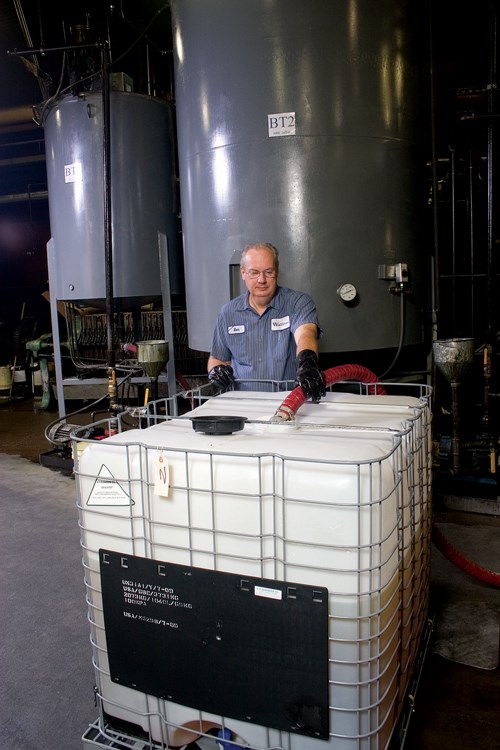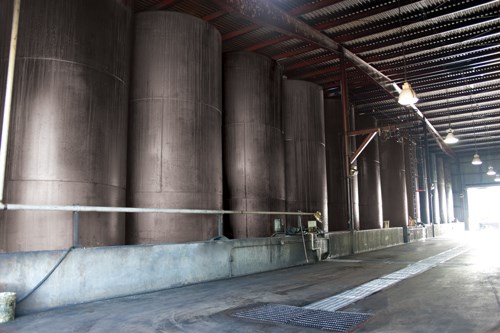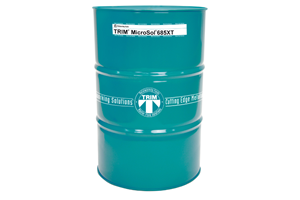The Changing Role of Metalworking Fluids
Every aspect of the metalworking process is under scrutiny to reduce costs and improve efficiencies, including the use of metalworking fluids.
As budgets have tightened and every company is looking to squeeze every last ounce of profit out of each job, the role of machining lubricants is changing. Once thought of as a commodity item that was simply necessary as a “must have” to keep machine tools humming along, today, the formerly lowly lubricant is taking center stage as a key player in shop efficiency, extending tool life and driving down cost.
Machine manufacturers have built bigger, faster and more productive machinery that are calling for more performance from their metalworking fluids. Tooling and high-pressure equipment are the standard for better finish, tools and the required reduction in cycle time.
When one looks specifically at the precision machining segment of the market, the desire to reduce part handling to a “done-in-one” philosophy means that choosing the right lubricant before starting the job takes on a greater importance. Matching the correct fluid to the tools, materials and operations is increasingly critical.
Is there one metalworking fluid that will work for all machines and applications? Probably one universal fluid is not available. But there are certainly optimum choices that can and should be made to maximize operations and tool life.
Having a metalworking fluid manufacturer or distributor partner who truly takes the time to understand the customer’s application needs is the key. The more the supplier understands the customer’s operation, the better his recommendations and the more successful the application will be.
Environmental Impact Changing the Game
In our increasingly environmentally conscious society, there has been a reduction in the number of acceptable chemicals approved for use in product formulations. Chlorine is not used as often in most products and many chemical products are subject to VOC restrictions, especially in Canada and parts of California. Therefore, metalworking fluid manufacturers are constantly looking for improved environmentally friendly formulas that both meet today’s requirements without any loss in effectiveness.
For decades, manufacturers have been required to provide MSDS (Material Safety Data Sheets) for all potentially hazardous chemical products. This has been a part of the OSHA Hazard Communication Standard (HCS). More recently, the GHS (Globally Harmonized System of Classification and Labeling of Chemicals) has renamed the material safety data sheets (MSDS) to simply SDS (safety data sheets) effective June 2015.
All of these changes reflect our global economy and the fact that all manufacturers are subject to the same standards regardless of where they are located. These compliance regulations are virtually inescapable.
Not a One-Size-Fits-All Solution
All metalworking shops are different. Each shop has different machine tools and makes different parts. Therefore, each needs a different solution.
Here is a brief review of the various types of metalworking fluids that are typically found in the industry and what role each product category plays.
Machining Coolants. Machining coolants are formulated to provide improved performance and finish, offer high operator acceptance and leave less residue on the machine and parts. In addition, a quality machining coolant will result in a longer sump life and therefore, a reduction in disposal cost.
Lubricating Oils. Lubricating oils are a dependable and reliable solution for reducing maintenance of machines. These oils are typically formulated using a base oil (called mineral oil) with the addition of additives. It is these additives that differentiate one oil from another.
Cutting Oils. Cutting oils perform a variety of functions in the metalworking environment. The primary reason for using a cutting oil is to improve tool life, but cutting oils also reduce workpiece thermal deformation, improve surface finish and help flush away chips from the cutting zone. Cutting oils fall into the following categories:
Straight oils
Soluble oils
Semi-synthetic fluids
Synthetic fluids
Cleaners. Cleaners are used for everything from cleaning metal removal fluids to adding rust protection.
Rust Preventives. These products are important as they are used to keep rust and oxidation off of machined parts during warehousing and delivery of the parts.
Different Applications Require Different Solutions
Many times, a shop’s specific application will dictate the proper choice when it comes to matching the perfect lubricant to the job. Whether the operation is Swiss machining, precision machining, CNC machining or drawing/stamping, there is a metalworking fluid that is formulated to that specific task.
Machining applications for specific metalworking fluids include turning, hobbing, drilling, tapping, reaming, milling, forming, drawing and stamping, to name a few. A good quality machining lubricant will work for most of these applications.
Specific applications like honing or grinding require application-specific cutting oils that should be available from any quality manufacturer or distributor. As more exotic metals that combine complex combinations of metal alloys become available, the metalworking lubricants industry must keep pace with products designed to work with these new metals.
Custom Formulas for Custom Applications
Purchasing lubricants from a “full line” supplier doesn’t mean that manufacturer will necessarily have the ideal solution for every shop or application. Some shops may need that standard formulation “tweaked” for their application to gain the most benefit. That’s where partnering with a supplier who has taken the time to understand the customer’s requirements can pay big dividends.
Related Content
Heavy-Duty Synthetic Coolant for Machining, Grinding
PMTS 2023: Fortech’s TechKool FT4000 synthetic coolant is formulated to reject tramp oil that can cause smoking or misting and premature spoilage of coolant.
Read MoreVomat Coolant Filters Provide Precise Temperature Control
The company’s filters ensure a continuous supply of clean oil for microtool grinding applications.
Read MoreHennig Inc. Acquires Industrial Coolant Systems
ICS develops and field tests high-pressure coolant systems, coolant filtration systems and other machine tool solutions.
Read MorePrecision Machining Technology Review September 2023
Production Machining’s September 2023 technology showcase includes some of the latest technology from Lyndex-Nikken Inc., Kurt Workholding, Master Fluid Solutions, Rego-Fix Tool Corporation and Jorgensen Conveyor & Filtration Solutions.
Read MoreRead Next
Do You Have Single Points of Failure?
Plans need to be in place before a catastrophic event occurs.
Read MoreA Tooling Workshop Worth a Visit
Marubeni Citizen-Cincom’s tooling and accessory workshop offers a chance to learn more about ancillary devices that can boost machining efficiency and capability.
Read MoreEmerging Leaders Nominations Now Open
Here’s your chance to highlight a young person in your manufacturing business who is on the path to be a future leader moving your company forward.
Read More
























